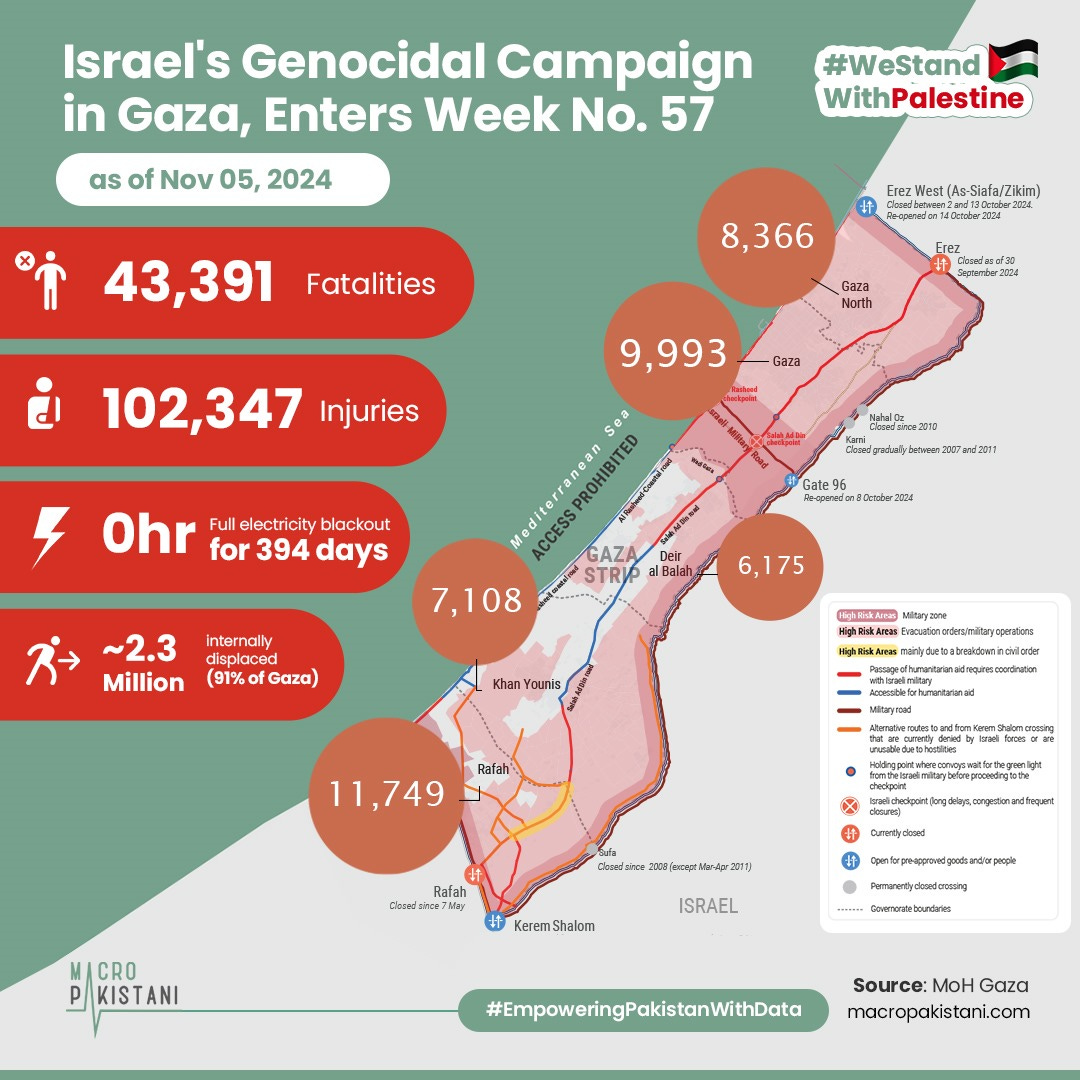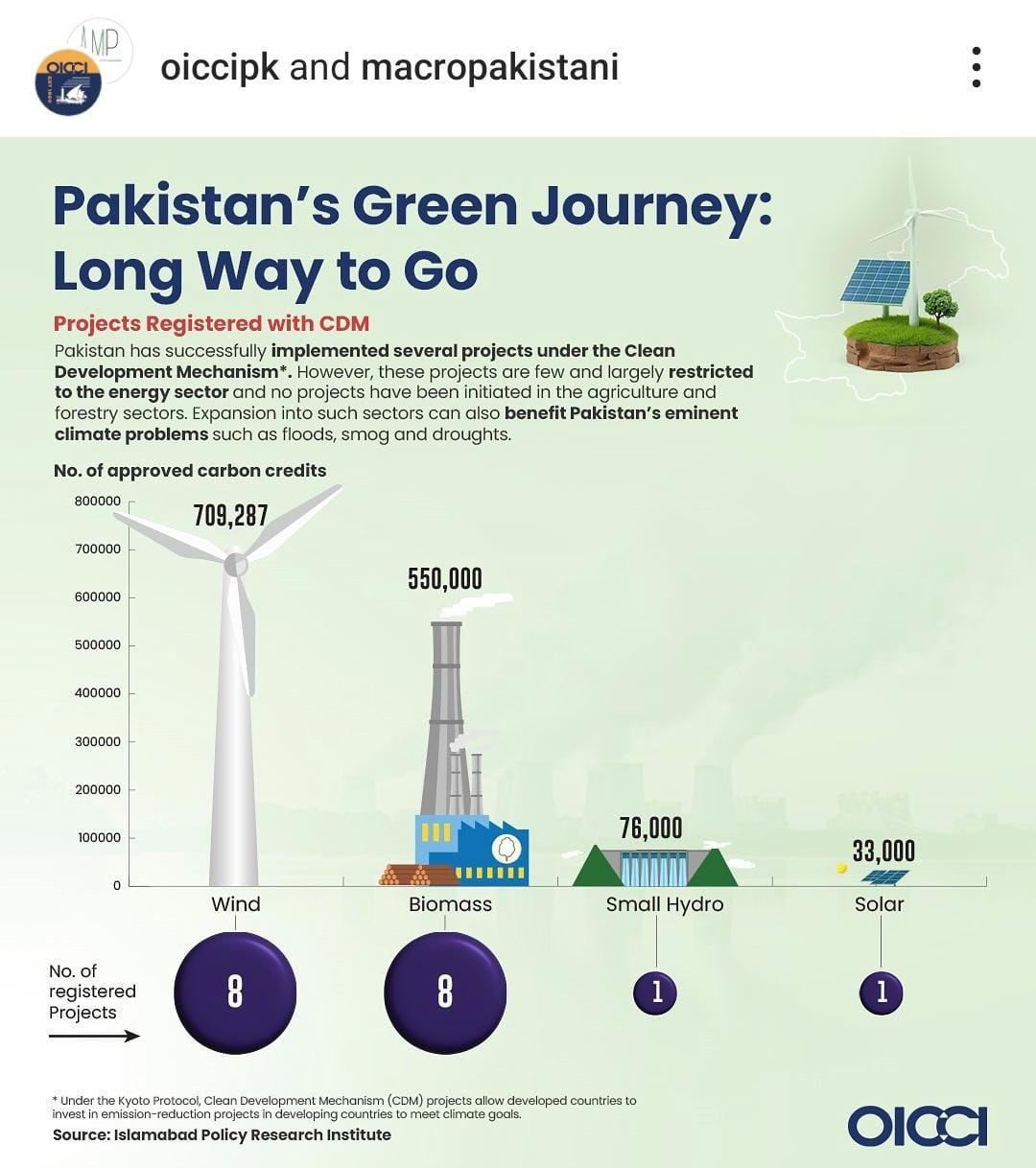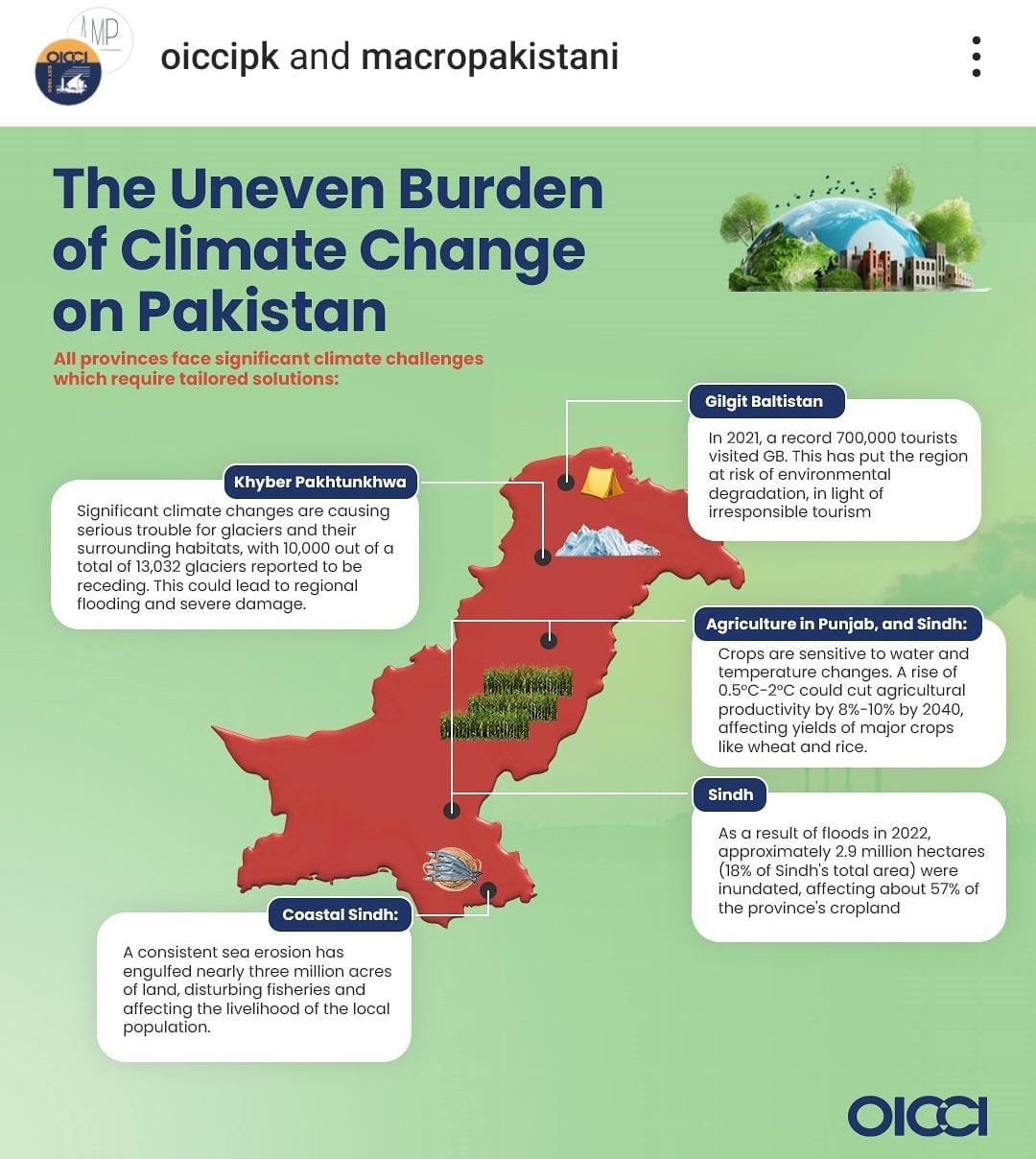Pakistan’s Climate Challenge
By 2070, climate change could cost Pakistan 21.1% of its GDP, with labor productivity losses projected at 10.4% and natural resource sector losses at 12%.

Pakistan faces considerable climate challenges that pose significant risks to its economy and population. The 2024 ADB survey revealed that while 91% of respondents across Asia recognize the seriousness of climate change, awareness of government policies varies greatly, with Pakistan scoring lower in public knowledge compared to regional peers like China and Singapore. Although the country is making progress, exemplified by the submission of its National Adaptation Plan (NAP) to the UNFCCC in 2023, more comprehensive awareness and engagement are essential to leverage international climate finance effectively.
With increasing pressure from global climate shifts, how can Pakistan bolster public awareness and support for climate initiatives?
Climate change’s impacts on Pakistan's economic stability are evident, with projections under high-emission scenarios showing potential GDP losses of 21.1% by 2070. This figure underscores the need for urgent adaptation and mitigation strategies, as Pakistan’s losses from reduced labor productivity alone are projected at 10.4% of GDP by the same year, among the highest in the region. The agricultural and natural resource sectors, crucial for Pakistan’s economy and employment, are particularly vulnerable, with expected losses of 12% of GDP.
As heat waves intensify and natural disasters become more frequent, both rural and urban populations face escalating economic and social hardships.
The regressive nature of climate change’s impacts in Pakistan further emphasizes the burden on lower-income communities. These populations are most likely to reside in high-risk areas exposed to flooding and storms, depend on climate-sensitive livelihoods such as agriculture, and have limited resources to adapt or respond to climate-related disruptions. As economic losses mount, climate change will disproportionately affect those least equipped to cope, threatening to deepen existing inequalities. This makes it imperative for Pakistan to prioritize climate-resilient infrastructure, invest in adaptive agricultural practices, and scale up public engagement in sustainable solutions to mitigate long-term risks.
GRAPHIC
The Environmental Quality Authority reports that since October 2023, the Israeli Occupation Forces (IOF) have dropped over 85,000 tonnes of explosives on Gaza—exceeding the amount used in World War II. Among the munitions deployed are those containing white phosphorus, prohibited under international law by the United Nations Convention on Certain Conventional Weapons. This intense bombardment has caused significant environmental harm, endangering the health of humans and wildlife. Additionally, damage to water infrastructure has led to polluted water leaking into groundwater reserves, foreshadowing a long-term health and environmental catastrophe that could affect residents for generations.
While Pakistan has implemented several Clean Development Mechanism (CDM) projects primarily in the energy sector, there has been a notable absence of projects in agriculture and forestry. The global carbon trading market has rapidly grown, now exceeding $260 billion, with 10.3 gigatonnes of CO2 equivalent traded.
Although the 18th Amendment devolved environmental matters to provinces, the Pakistan Climate Change Act 2017 restricts localised responses, with provincial climate spending remaining low and access to international funding requiring federal approval.
Did you know? Allama Muhammad Iqbal was not only a poet but one of the earliest economic thinkers in South Asia.
Allama Muhammad Iqbal highlighted the paradox of modern economics, envisioning a world of liberalization, peace, and mutual aid—yet warning against the reality of ‘aid syndrome’ and exploitation. In his view, economic aid often masks a deeper issue, where wealthier nations profit while poorer ones struggle. He warns, “one nation pastures on the other, one sows the grain which another harvests,” underscoring the moral cost of such imbalances cloaked in commerce.
Macro Pakistanis who read this newsletter can directly give us feedback via Substack chat:
Data Visualization & Marketing Partner: Brand Nib
Visit: https://macropakistani.com/advertise/
Grateful for the ever-growing list of collaborators!
About Us: Macro Pakistani is a data-driven research platform that aims to provide a basic understanding of Pakistan’s economy. If you have an interest in contemporary news but are currently overburdened with sensationalism and specialized vocabulary, we are the platform for you.
How are we doing? Please send us any questions, comments or suggestions by replying to this email.







